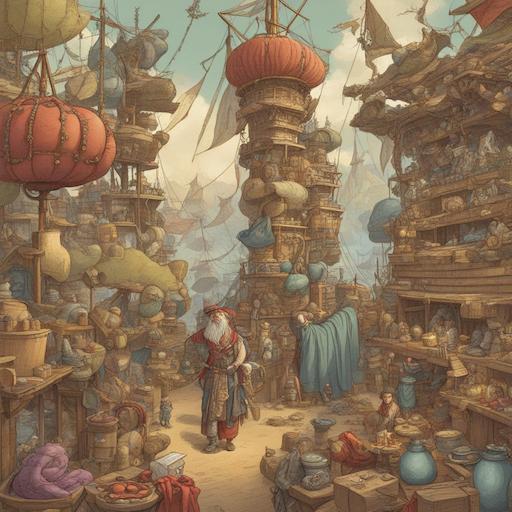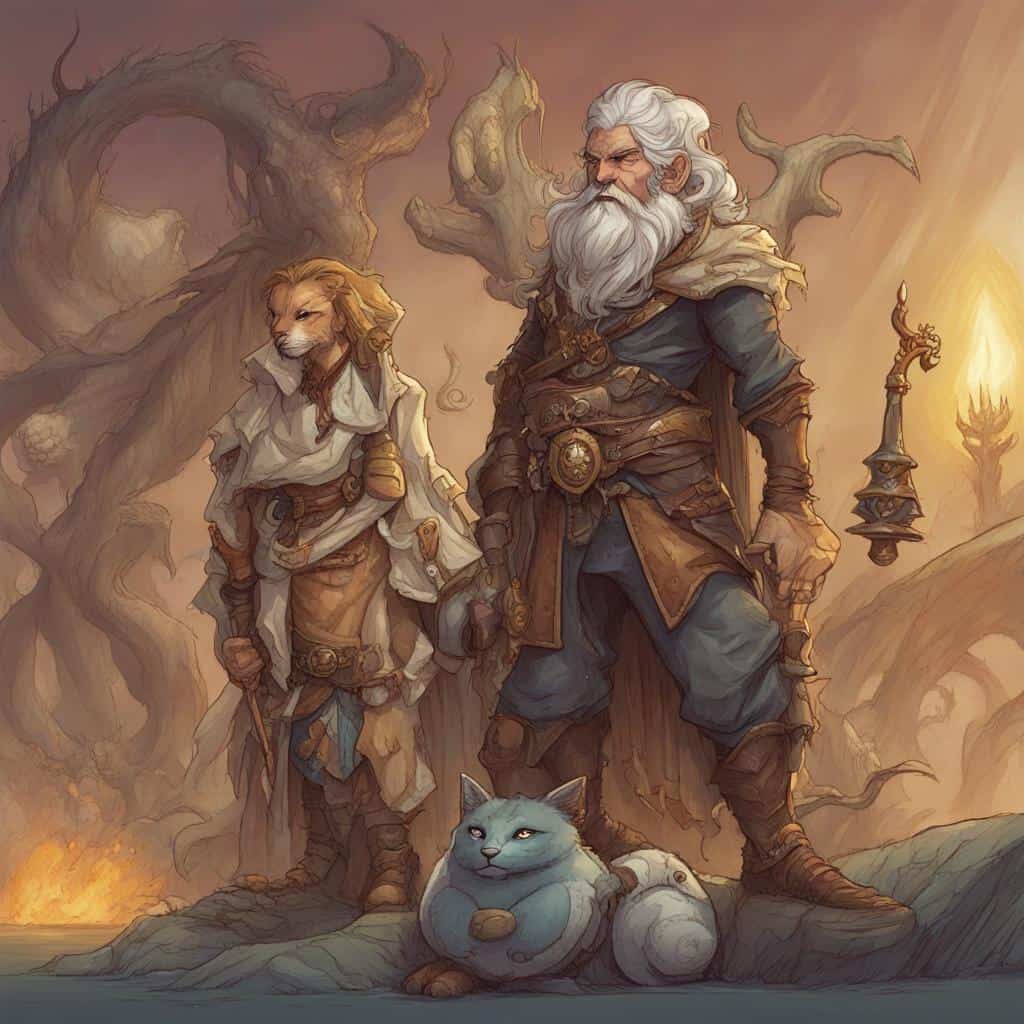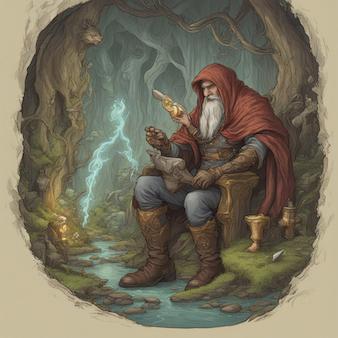Fantasy worlds are full of magic, dragons, and epic battles, but they also need a believable fantasy economy and trade system. A fantasy world’s economy shapes the way people live, work, and interact with each other. It affects the price of goods, the availability of resources, and the power of the ruling class. To create a compelling fantasy world, it’s crucial to build a believable economy and trade system that is consistent with the world’s lore and culture. In this article, we’ll explore the key components of a fantasy economy and trade system and how to make it feel real to your readers.
Guide to Building a Fantasy Economy

- Currency: A fantasy world needs a currency system that makes sense for its culture and society. Some fantasy worlds use gold or silver as their currency, while others use gems or rare objects. The value of the currency can also vary depending on the world’s economy. For example, if the world is rich in gold, then the currency may be less valuable than a world with fewer resources. It’s important to establish the value of the currency early on and be consistent with its use throughout the story.
- Resources: The resources available in a fantasy world affect the economy and trade system. A world with a lot of fertile land may have a thriving agricultural industry, while a world with few natural resources may rely heavily on trade. It’s important to establish what resources are available in the world and how they are used to create goods and services. This can also affect the value of goods and services, as some may be more expensive due to their scarcity.
- Trade Routes: Fantasy worlds need trade routes that connect different regions and allow for the exchange of goods and services. These trade routes can be dangerous, and they may be protected by armies or mercenaries. The trade routes should also reflect the world’s geography and culture. For example, if a world has many islands, then there may be a lot of maritime trade. If a world has a lot of mountains, then trade may be restricted to mountain passes.
- Taxes and Tariffs: Taxes and tariffs are a part of any economy, and a fantasy world is no exception. Rulers may levy taxes on trade, goods, and services to finance their armies or fund their kingdoms. Merchants may also be subject to tariffs when importing or exporting goods. These taxes and tariffs can create tension between rulers and merchants, leading to conflict or even war.
- Specialized Industries: A fantasy world may have specialized industries that are unique to the world. For example, a world with magical creatures may have a thriving industry based on capturing and taming these creatures. A world with advanced technology may have a specialized industry based on the creation of machines or weapons. It’s important to establish these industries and how they affect the world’s economy and trade.
- Guilds and Merchant Houses: Guilds and merchant houses are a part of many fantasy worlds. These organizations may control trade in certain regions or industries, and they may have their own rules and regulations. Joining a guild or merchant house may provide benefits such as protection, access to resources, or even political power.
- Corruption and Crime: A fantasy world’s economy may also be affected by corruption and crime. Rulers may take bribes or extort merchants, leading to an uneven playing field. Criminal organizations may control certain industries or trade routes, leading to violence and instability. It’s important to establish these elements and how they affect the world’s economy and trade.
When building a believable fantasy economy and trade system, it’s important to consider all of these elements and how they fit together. It’s also important to be consistent with the world’s lore and culture. A world with a lot of magical creatures may have a different economy than a world without magic. A world with a complex religious system may have a different view on trade and commerce than a world with no religion.
In addition to these key components, there are some additional tips to keep in mind when creating a believable fantasy economy and trade system:
- Research historical economies and trade systems. Many fantasy worlds are based on real-world cultures and societies, so researching the economic systems of those cultures can provide inspiration and help you create a more realistic economy for your world.
- Consider the impact of magic and other supernatural elements. Magic can greatly impact the economy and trade of a fantasy world. For example, a world where magic is rare and valuable may have a different economy than a world where magic is common and easily accessible.
- Think about the social hierarchy of the world. The ruling class and their attitudes towards trade and commerce can greatly impact the economy. For example, a world where the ruling class values honor and chivalry may have a different attitude towards merchants and trade than a world where the ruling class is focused on wealth and power.
- Consider the impact of war and conflict on the economy. Wars and conflicts can greatly disrupt the economy and trade of a world. For example, a world in the midst of a long and brutal war may have a much different economy than a world at peace.
A believable fantasy economy and trade system is crucial for creating a realistic and immersive world for your readers. By considering the key components of a fantasy economy, doing research, and staying consistent with the world’s lore and culture, you can create a compelling and believable economy and trade system that will make your world feel real and engaging.
Keywords: fantasy, economy, trade system, currency, resources, trade routes, taxes, tariffs, specialized industries, guilds, corruption, crime, magic, social hierarchy, war, conflict, fantasy economy, believable fantasy economy and trade systems, great fantasy economy, fantasy economy building
Check out our Novel Writing Workbooks
Check out Little Tree Food Forest for articles on food forests and homesteading.
Check out FoodieScapes for articles on growing, fermenting and preserving food
Check out StoryScapes.World for articles on writing.
Subscribe to our newsletter to get information delivered to your inbox on how to write a book, outlining your novel, keeping journals, marketing your novel, self-publishing, writing poetry and more.










